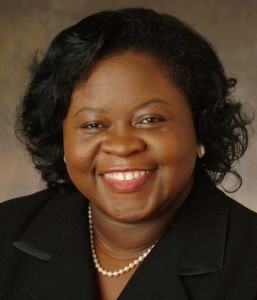African American Women Should #TakeChargeandTest this National Women and Girls HIV/AIDS Awareness Day
Topics


Every March 10, CDC joins millions across the country to observe National Women and Girls HIV/AIDS Awareness Day. This special day is sponsored by the U.S. Department of Health and Human Services’ Office on Women’s Health and is intended to heighten awareness of the steps all women can take to protect themselves and their partners from HIV through prevention, testing, and treatment.
HIV continues to be a serious health threat for women and girls, who comprised 23% (280,200) of the 1.2 million people living with HIV in the United States in 2011. In 2013, one out of five (9,278) of the estimated 47,165 new diagnoses of HIV infection were among women and girls over age 13.
The majority of these new infections were among African American women whose rate of HIV infection remains the highest among all women—19 times that of white women and almost 4 times that of Hispanic/Latina women.* CDC estimates that at some point in her lifetime, one in 32 black women will be diagnosed with HIV compared to one in 106 Latinas, and one in 526 white women. The truth is all women are at risk and need to take steps to protect themselves from HIV, but today, on NWGHAAD, I want to share information specific to African American women who have the highest risk of HIV.
African American women don’t necessarily engage in riskier behaviors than women of other ethnicities, rather it is a range of complex factors that increases the risk for HIV. For instance, there may be more people living with HIV in their community, which increases the chance of exposure with every new sexual encounter. Higher rates of sexually transmitted infections, not knowing your (or your partner’s) HIV status, stigma, fear, discrimination, negative perceptions about HIV testing, and socioeconomic challenges that can limit access to healthcare, housing, and HIV prevention education, as well as underestimating risk, are all contributing factors.
One way to change this is through effective, evidence-based communication tools that can speak directly to the target audience. Take Charge. Take the Test.™, one of CDC’s national campaigns under the Act Against AIDS umbrella, was developed specifically for African American women between the ages of 18–34, not just to encourage them but to give them the information they need to take steps to protect themselves against HIV and first and foremost: to get tested for HIV.
The campaign was informed by significant research with African American women across the United States and uses great imagery that resonates with the audience, as well as compelling messages to inform African American women about HIV and their risks. The campaign aims to empower black women to Take Charge. Take the Test.™, in other words, to know their risk and take the first steps to protect their health and that of their partner(s): Get Tested.
We know African American women are listening, are taking charge, and are taking the test. Even with the disproportionate impact of HIV on African American women, new HIV infections are indeed declining among African American women. From 2008 through 2010, a 21% reduction in the number of HIV infections among African American women was reported. But there is still so much more to do.
I invite you today and every day, to join in the work to ensure women have the information they need to protect themselves, their daughters and unborn children, as well as their partner from HIV. Help us by sharing and using materials from Take Charge. Take the Test.™ and other campaigns under the Act Against AIDS umbrella. Help spread the word! Together we can create a ripple effect to end HIV—one person at a time.*Hispanic/Latinos may be of any race.